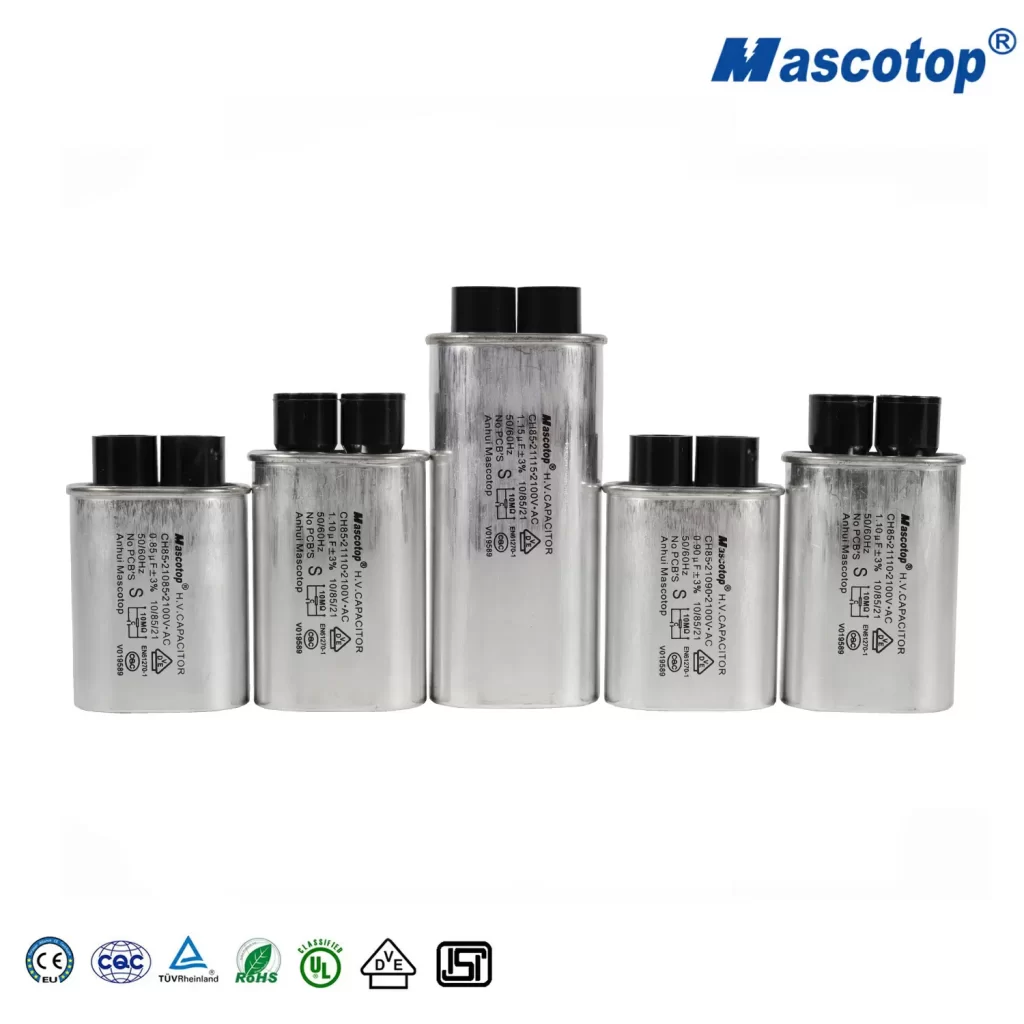
Microwave ovens have revolutionized the way we cook, offering unparalleled convenience and speed in meal preparation. At the heart of these appliances lie various components, each serving a critical role in generating and controlling the electromagnetic radiation used for cooking. Among these components, capacitors stand out as essential elements that contribute to the efficient and safe operation of microwave ovens. In this comprehensive exploration, we delve into the intricacies of microwave oven capacitors, examining their diverse types, functions, and applications in detail.
Microwave oven capacitors are specialized electronic components designed to store and release electrical energy efficiently. They play a pivotal role in regulating voltage, filtering electrical currents, and ensuring the smooth operation of the appliance's electrical system. Capacitors used in microwave ovens come in various types, each tailored to specific functions within the appliance's circuitry. By understanding the nuances of these capacitors, technicians and users alike can appreciate their significance in maintaining the performance and safety of microwave ovens.

High voltage capacitors are integral to the operation of microwave ovens, as they store and discharge electrical energy to power the magnetron—the component responsible for generating microwave radiation. These capacitors are designed to withstand high voltages and rapid energy discharges, ensuring the reliable operation of the appliance.
Filament capacitors, also known as heater capacitors, serve the crucial function of providing the necessary current to heat the cathode filament in the magnetron. By facilitating electron emission, these capacitors enable the generation of microwave radiation essential for cooking food in microwave ovens.
Power factor correction capacitors are employed in some microwave ovens to optimize power usage and improve energy efficiency. These capacitors minimize reactive power, thereby enhancing the power factor of the appliance's electrical system and reducing energy consumption during operation.
Bypass capacitors play a vital role in stabilizing the power supply and mitigating high-frequency noise and interference in microwave oven circuits. By shunting unwanted electrical noise, these capacitors ensure the smooth and uninterrupted operation of sensitive electronic components.
Interference suppression capacitors are designed to minimize electromagnetic interference and radio frequency interference generated by microwave oven components. By reducing interference, these capacitors help maintain compliance with electromagnetic compatibility standards and prevent disruptions to nearby electronic devices.
Microwave oven capacitors perform a range of functions critical to the appliance's operation, including voltage regulation, energy storage, noise suppression, and interference mitigation. Their applications extend beyond domestic use to include commercial and industrial settings where microwave ovens are employed for food preparation on a larger scale. Capacitors play a vital role in ensuring the reliability, efficiency, and safety of microwave ovens across various applications and environments.

While microwave oven capacitors are essential components, they pose potential safety risks if mishandled or damaged. High voltage hazards, capacitor discharge procedures, and the importance of professional repair services underscore the need for users and technicians to exercise caution when working with microwave ovens. Adhering to safety protocols and manufacturer guidelines can help mitigate risks associated with capacitor handling and maintenance.
Microwave oven capacitors are indispensable components that contribute to the efficient and safe operation of these appliances. By understanding the diverse types, functions, and applications of capacitors in microwave ovens, users and technicians can appreciate their significance in maintaining performance, reliability, and safety. As microwave technology continues to evolve, capacitors will remain essential elements in ensuring the functionality and longevity of these ubiquitous kitchen appliances.
With this comprehensive exploration, we have provided valuable insights into the world of microwave oven capacitors, empowering readers to gain a deeper understanding of these critical components and their role in modern cooking technology. As we look to the future, advancements in capacitor technology promise to further enhance the efficiency, performance, and safety of microwave ovens, ushering in a new era of culinary innovation and convenience.